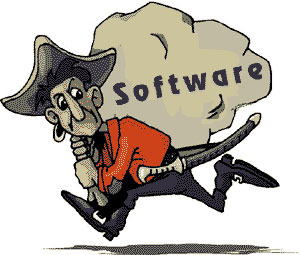
In the wake of recent reports exposing the activities of former MP Rahim Jaffer, lobbying has been the talk of Ottawa for the past month. The incident has had an immediate impact on lobbying regulations, with the Conservatives and Liberals jostling over who can introduce tougher disclosure measures. The changes may plug a few loopholes, yet the reality is that lobbying efforts are not always the subject of secretive meetings with high-level officials.
Consider the intensive lobbying effort on promised intellectual property reform. In recent weeks, those efforts have escalated dramatically, with most activities taking place in plain view. Scarcely a week goes by without a major event occurring -- last week it was a reception sponsored by the Canadian Private Copying Collective, the week before an event hosted by the Entertainment Software Association of Canada, and the week before that the Juno Awards attended by several cabinet ministers and MPs.
Even more open is the public campaign designed to persuade Canadians that their country is a piracy haven. Late last month, the IFPI, which represents the global recording industry, released its annual Recording Industry in Numbers report that tracks global record sales. The report targeted two countries -- Canada and Spain -- for declining sales and linked those declines to copyright law. Not coincidentally, both countries are currently working on legal reforms.
The IFPI release succeeded in generating attention, but a closer look reveals that it put the spotlight on the wrong country. Canadian sales declined 7.4 per cent last year. That was bad news, but nearly identical to the global average of 7.2 per cent. Moreover, the declines were far larger in both the United States (10.7 per cent) and Japan (10.8 per cent), yet neither of those countries was described in similarly negative terms.
Really embarrassing
The same week, the U.S. government chimed in with its annual Special 301 report. Often described as the global piracy list, the U.S. chose to lump Canada together with countries such as China and Russia as allegedly among the world's worst intellectual property offenders.
Rather than embarrassing Canadians, the list itself is increasingly viewed as the embarrassment. This year's report ignored a submission from the world's largest technology and Internet companies (including Microsoft, Google, T-Mobile, Fujitsu, AMD, eBay, Intuit, Oracle, and Yahoo), which argued that it is completely inappropriate to place Canada on the list.
Moreover, the data suggests Canada is a leader, not a laggard. According to the software industry's own piracy numbers, Canada's piracy rate is declining and is dramatically lower than any other country on the priority watch list. In fact, the Business Software Alliance has characterized Canada as a "low piracy country."
The news is similar with respect to movie piracy, where the motion picture industry has acknowledged that incidents of illegal camcording have dropped in Canada as the country is one of few in the world with criminal convictions for such activities.
Pirate fiction
The government has taken further action in recent months to combat infringement. Although a new copyright bill is still a few weeks away, Canada recently amended its Proceeds of Crime regulations by removing the Copyright Act from the list. Copyright lobby groups had requested the change to facilitate legal action against infringers.
While there remains further room for improvement, claims that Canada is a piracy haven are based largely on fiction rather than fact. But with a major bill only weeks away, this form of lobbying seems certain to continue. ![]()
Read more: Science + Tech
















Tyee Commenting Guidelines
Comments that violate guidelines risk being deleted, and violations may result in a temporary or permanent user ban. Maintain the spirit of good conversation to stay in the discussion.
*Please note The Tyee is not a forum for spreading misinformation about COVID-19, denying its existence or minimizing its risk to public health.
Do:
Do not: